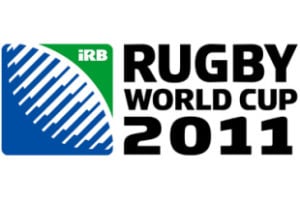
The IRB Rugby World Cup is under way in New Zealand. The hosts come in as the favorites because, much like Brazil in football, the All Blacks pretty much are always the favorites, despite a history of underachievement in rugby’s signature event. The All Blacks have only emerged with one William Webb Ellis Cup, and that was back in 1987 at the inaugural World Cup. But as hosts they get a huge advantage and many people think this might be their year, despite the fact that they came in runners up in the Tri Nations this year, which served as a warmup rather than as one of the most important tournaments in the world — which is a reason why New Zealand, South Africa, and Australia should only hold Tri Nations in the three non-World Cup years.
Africa has two teams competing in this year’s tournament. Namibia is one of them and while they are long on heart they are short on talent and will almost assuredly end up going pointless in the group stage. The fact that they share Group D with the other African side in the tournament, the mighty (but somewhat scuffling) defending World Champion Springboks just makes Namibia’s not-quite-ready-for-primetime squad pale all the more in comparison.
Amabokoboko defeated Wales in a match that the tough and driven Welsh really could and maybe should have won. The Boks began the game on fire and mashed their way down the pitch for an early try and conversion. But from that point on Wales controlled almost every phase of the game, dominating both possession and territory and coming up just short and not a little unlucky after a missed drop kick from directly in front of the goal posts in crunch time. The Springboks looked old and they emerged rather beat up though they did show heart and pride in rallying for the victory after falling behind 16-10 with time waning. That should not impact them in the group stage, although both Samoa and Fiji have looked powerful early on, albeit beating up on Namibia — each scored 49 against South Africa’s neighbor to the northwest.
Nonetheless, with a victory over Wales South Africa is in the driver’s seat in Group D. Ranked third an the world and sitting as defending cupholders the Springboks will find no joy in simply advancing beyond the group stage. Some teams would revel in such success. But for the Boks and their rabid fans the standard is winning titles and so the pressure is squarely on captain John Smits‘ boys. All else really really just represents degrees of failure. In the four World Cups since the Springboks emerged from isolation they have won twice (in the epochal event that they hosted in 1995 and again in 2007), finished third once (1999), and only managed the quarterfinals in 2003 in what by all standards represented a colossal failure. Anything short of the semis and Peter de Villiers had better polish his resume — and to be honest, if the Boks lose in the semifinal round the coaching staff probably had better start working their contacts to secure their next job.
And of course no story about South African rugby would be complete without the spectre of racism raising its ugly head. Two events of alleged racism among white South African rugby players toward blacks have emerged. In South Africa an alleged racial attack by white players and fans of the Edenvale Panthers against black players the Soweto Rugby Club (SRC) marred a President’s League game a few weeks ago. And former Springbok tighthead prop Brian Mujati accused white South Africans Heinke van der Merwe and Steven Sykes of aiming racial slurs him in a pre-season match between Leinster and Northampton Saints in Dublin, Ireland. According to Mujati’s twitter feed: “Steven Sykes and Heinke van der Merwe were calling me a baboon during the scrums last night. Racism is still alive and things don’t change.” With discussions of race and rugby naturally come discussions of transformation within the sport. This is an issue that will continue to challenge the sport at all levels in the country, but I think Sports and Recreation Minister Fikile Mbalula was right in arguing last week that “People who want to discuss transformation in rugby, this is not the time for discussions.” However, when the tournament ends any time should be the right time for discussions that very much still need to be ongoing.